- Home
- Helen Dunmore
Zennor in Darkness Page 21
Zennor in Darkness Read online
Page 21
‘Lift the gate – it’s got stuck,’ Clare calls. Hannah’s face is averted under the brim of her straw hat. Then she pushes the gate open, and comes on down the path.
The path is twenty feet long, no more. Hannah takes two steps, and Clare lets the sheet fall. It will get grass stains on it, it will all have to be done again, she thinks with one part of her mind. She sees her own hand gripping the handle of the mangle.
‘Hannah,’ she cries out. ‘Go away.’
But Hannah comes on. Her face is a colour Clare has never seen it. Her yellow skin sticks to her bones. Her eyes are startled, wide-open and staring. She doesn’t say anything. She comes up and lays both her hands on top of the mangle, and looks at Clare.
‘Mind your fingers,’ says Clare in a quick, frightened voice.
‘Clare,’ says Hannah.
‘I know what you’re going to say. Don’t say it.’
‘You got to come downalong to Nan’s, Clarey.’
‘No, I can’t, I’m in the middle of my washing.’
‘Bugger your washing,’ says Hannah. Now she is round the other side of the mangle, with Clare. She puts her arm around Clare’s waist. Clare is sweating. Hannah can smell her frightened sweat.
The two girls go into the scullery, and Hannah pours two glasses of water from the big jug Clare keeps on a stone slab behind the door, covered.
‘But it can’t be,’ says Clare. ‘He was safe. He was in camp. He was training to be an officer.’
‘It was an accident,’ says Hannah, her mouth shaking. ‘It was an accident in training. He was killed instantly, it said.’
The two girls look at each other. They both know that is what telegrams always say.
‘But it can’t be true,’ says Clare. ‘He’d got out of it. He was safe. He can’t have been killed in an officers’ training camp. Not after all that long time in France.’
Surely this is some awful joke. Perhaps it’s a test. Perhaps it’s a test to see if they’re fit to be an officer’s family. But then she looks at Hannah’s face and sees that John William is already dead there.
‘Do you know when it was?’
‘Saturday.’
‘When we were digging up the end of the vegetable plot, then.’
For Clare had thought she would plant cauliflower, and winter cabbage, and Hannah had come up to help her after work. They had dibbed in the young plants, and watered them in the early evening –
‘And then we walked over to meet Peggy – didn’t we?’
Hannah nods. That’s what they did, and some time in between their planting the winter cabbages and hustling Peggy out for an hour’s evening walk, John William had died. But the cabbages would live, because Clare had been watering them every day, carrying the water carefully across to the plot.
‘I shall stop watering them,’ she says aloud.
‘What?’
‘The cabbages. I shall stop watering them. It’s not right that they should keep growing when he’s dead.’
She has said it now. When he’s dead. The words go down through her like stones falling through deep water. It feels as if those words have opened up some new place in her, which has never been touched before. But she will have to say them again, and again, because it will never not be true now.
They finish drinking the water, and Clare says she will go upstairs to take off her overall.
‘But Hannah! What can I do? I’ve no mourning.’
‘Bring down your silk. Nan’ll dye it. She’s dyeing our dresses tonight.’
‘When did the telegram come?’
‘An hour ago. I was at work. Kitchie was round at Nan’s, and he fetched me home. He wanted to come up here with me, but I didn’t let him.’
Yes, Hannah has her black work dress on. What had she been doing when Kitchie came into the shop? Trying to get rid of a tiresome customer who came in for a packet of needles and stayed to talk for twenty minutes? Pulling down the blinds because the sun was threatening to fade a roll of cretonne at 1/9d a yard? Hannah moving. The way she would reach up with the blind-pole and hook the blind down. Supple and full of life. Drat the thing, it always catches. Wants oiling. John William’s smell of carbolic and, under it, almonds. They could never kill the smell of his skin.
Those kidneys. Don’t think of them.
‘Hannah, I’m going to be sick.’
She gets to the privy in time and vomits, while Hannah holds her head and strokes her forehead.
‘It’s all right now, Clarey. It’s all right.’ Now Hannah is crying.
The privy stinks of vomit and sweat as Clare struggles up. She is dizzy, and there are red sparks coming and going in front of her eyes.
You have to keep on doing things; you can’t stop, even when this happens. Now I have to rinse out my mouth or else it will smell. I must wash, and comb my hair, and put on different clothes. I have to do that, but I can leave the washing. I needn’t think about that now, but I shall have to think of it later, for there’s no one else who will.
Hannah is crying. Hannah must sit down at the table, and I’ll make us both tea. It won’t matter if we don’t go straight down to Nan’s. Hannah cries. She has forgotten Clare now. She sits at the kitchen table with her head on her arms, her back shaking, curled in on herself and private. She can’t cry at home, thinks Clare, because of Aunt Sarah. Everybody will be round Aunt Sarah, the way they were at the railway station. They will expect Hannah to be strong.
For a moment Clare hates Aunt Sarah – weak, greedy Aunt Sarah, who will feebly gulp down a macaroon in the middle of a fit of hysterics. Licensed mourner, chief in suffering. And I am just his cousin.
Clare puts on her grey dress and packs her Sunday dress into a brown-paper parcel. How strange: for once she is the competent one, the one who does things, while Hannah sits at the table. She looks out of the window and the sun is just the same, falling on the white tangle of sheet on the grass, and the loaded line with the other sheets nearly touching the worn grass. I shall go out and peg up the rest of it, and raise the line. But not yet. Hannah will think it isn’t seemly, even though it doesn’t make any difference if I do it now or tonight. John William is dead. He will always be dead.
They go out of the house and creep down the hill close together, dark, dull blotches on the brilliant morning. The cemetery looks beautiful, warm in the sun, curled up asleep on the curve of the hill. When they were children and they went out mackerel fishing, they would look back and see the cemetery, bigger than the town itself from the sea. Only John William wouldn’t look up. He frowned with concentration as he baited the lines.
‘Isn’t that a shoal of mackerel there?’ she cries.
‘No,’ says Hannah. ‘Just a bit of wind getting up.’
As they come into Nan’s, they’re engulfed by a close, suffocating smell of black dye. Nan’s decided not to wait; she has begun on her vat of mourning. Curtains are drawn, rooms are in shadow. There’s steam in the kitchen, snaking up from the vat of dye where deep bubbles pock and the clothes writhe slowly to the surface to be poked down again by Nan’s long wooden spoon. The kettle steams too, and the biggest tea-pot is drawing at the side of the range. Nan slices bread, and one of Uncle John’s hams sits at her right hand. The flesh of it is dark and rosy, exquisitely marbled with white fat. A basin of brown eggs waits to be hard-boiled.
‘That poor useless Ellen-creature brought them. She had them from her sister. Not that I would wish to eat out of Ellen’s kitchen, but there’s little enough she can do to an egg.’
Nan taps the eggs and tells Clare to get them hard-boiled. Her face is tired and severe, but there are no marks of tears on it. Like Clare, she hasn’t cried yet. Sarah is lying down in the back-bedroom. She took on terribly, but she’s fallen into a drowse now. Hannah must go and sit with her mother.
‘But where’s Uncle Arthur?’ asks Clare.
Nan shrimps up her lips.
‘Your Uncle Arthur’s gone out cursing God and all Creation – that’s th
e way it took him.’
How can Nan be like this? Her hands slice ham unerringly.
‘Fetch the mustard, Clarey, and there’s a last big jar of those pickled onions I put up in the winter. He’s better that way,’ says Nan. ‘Sometimes a man’s better on his own.’
‘Nan,’ says Clare. ‘Why don’t you sit down? I can do this.’
‘There’s plenty for all of us to do,’ says Nan. ‘Better to be doing than thinking. You might just turn those clothes, case they scorch on the bottom.’
The clothes smell ugly. The fume of the dye catches at the back of Clare’s throat and brings tears to her eyes.
‘I’ll have to see about the cards,’ continues Nan, running down her thoughts aloud.
The cards. They will have to be in all the shop windows by tomorrow morning.
WILL FRIENDS PLEASE ACCEPT THIS THE ONLY INTIMATION
How often she had seen a new card in a window as she went by, stopped to read it and thought vaguely of the gone dead one, Stevens or Rosewall or Date. And deep down in the impulse of sympathy there had been guilty gladness, as if to read of another’s death left her twice as alive. When they were children they used to play in the cemetery. They didn’t mind the dead. They would pick daisies and yarrow and make tiny wreaths for the graves. Those dead ones were another race. They had never really been alive. Caught, weak and silent: they could not run in the sunshine, scream with laughter, nibble the fat juicy ends of summer grasses. Death was something that was never going to happen to us.
Clare can picture the people stopping by the shop windows to read the cards. The cards will have John William’s name on them. How strange and impossible that seems, when only a little over a fortnight before he had been walking in these streets, buying Grandad a present of tobacco in the very shop that will bear his name in its window now. One person will stop, then two, then a little bunch. If they haven’t heard already, they will catch in their breath and say how terrible it must be for the Treveals, just when they were so proud of their John William going for an officer. If they already know, they will find their knowledge stamped there in black, black-bordered letters. They will linger, tracing over each letter. Then they will walk on in the sunshine, twice as rich as before. The boys John William fought with, the ones who would have liked to jeer at his ambitions but did not dare. For he was going to do it, she thinks hotly. He would have shown them all.
‘Don’t put the cards in, Nan,’ begs Clare.
‘Why, Clarey, what can you be thinking of? Don’t you know what’s right?’
Silence in the kitchen. They’ll all be here soon, snatched out of their daily lives, wreathed in shawls. Aunt Mag’s come already, and she is padding about upstairs, tending to Aunt Sarah. And your father, Clare? He doesn’t know. He was out when Hannah came.
Ah, yes. Out. That secret place that men go to and women don’t know about.
‘He’ll be back soon, Clarey. He’ll be down, soon as he hears.’
Nan is trying to comfort her, and Clare can’t say that her father will be no help to her now.
The door bangs hard. Clare jumps and gives a small ridiculous shriek. Now there is a blundering of boots at the door, quickly stilled by Nan. For a terrible moment she thinks they are bringing in John William’s coffin. But no – it can’t be. And at the door there are three lads, grown huge in the crowded space. A Harte and two Lees. Jack, Sammie and Esau. There they stand in their boots, with a white, mauled-looking Harry, barely on his feet between them.
‘There’s bin an accident,’ blurts Jack Harte. ‘It’s is arm. Is bad arm’s smashed up.’
They will not come into the house out of respect for the dead, for they are in their working clothes. So they know about John William already, thinks Clare. So quick: the cards not in the windows yet. They stand at the cottage doorway nervously, gaping with respect for its time of sorrow.
‘When did this happen?’ asks Nan, whisking over to white-faced Harry. She bends and examines his arm without touching it.
‘Help him in, then. Don’t just let him stand there,’ she orders, and they tramp over the threshold and deposit Harry with clumsy gentleness on the kitchen settle, then stand around uneasily, sniffing the dye and meat-smells that mean death in the house. A thread of spittle comes out of Harry’s mouth as he sags down and shuts his eyes. Esau Lee wipes his hands against his trousers.
‘When did this happen?’ asks Nan again.
‘Not long after your Kitchie come up and told us about John William. Bit a gear we got wanted fixing – it went an caught Harry’s arm.’ The Harte boy looks beyond Nan, at the wall.
‘Don’t let our Sarah hear em,’ says Nan sharply to Clare. ‘Now, Kitchie, run for Dr Kernack.’
‘It’s bad,’ says Jack Harte. What’s that in his voice? Something queer that ought not be there. You might almost say… satisfaction? Nan nods. She looks Jack straight in the eye and she nods slowly, acknowledging that same strange something. It’s bad enough. It’ll do. Clare has the feeling they are speaking another language, one which she is not quick enough to catch. But they’ve scarcely said anything, so how can that be?
‘I’ll tell Mother,’ says Hannah, who has been drawn downstairs by the noise of boots and voices.
‘You will not,’ says Nan. ‘They say one sorrow drives out another, but Sarah needs rest.’
‘She’s not resting,’ says Hannah.
Nan thinks for a minute. Sarah’s a poor thing, but she’s sharp enough. She’ll cotton on.
‘Maybe you’re right. Maybe it’s best she thinks of Harry rather than our Johnnie. Now wait there, Jack, Esau, Samuel.’
Sweat and tears are gathering on Harry’s face, but Nan takes no notice of them yet. She goes upstairs, and they hear her feet creak across the bedroom boards, and then the lock of her trunk snick, and the lid squeaking back. When she comes down, she has in her hand a screw of paper with something hidden in it. She closes Jack Harte’s fingers around it and pats his hand. But he pulls back. He won’t take it from her. She will need it – specially at a time like this.
‘You take it,’ she says. ‘Take it and don’t add to my troubles. You’re good boys, all of you.’
‘How much did you give em?’ asks Hannah, in quite her usual voice, the minute they are out of the house and clumping off up the street, back to work.
‘That’s for you to ask and me to know,’ says Nan, as if Hannah were six years old again.
‘Well, they can’t call him up now!’ exclaims Clare, suddenly realizing.
Nan and Hannah exchange slow, ironic glances. ‘Quick, isn’t she,’ remarks Hannah.
‘Get a bucket for Harry,’ says Nan, watching his colour.
‘Don’t let the doctor put his hands on me, Nan, don’t let the doctor touch me,’ he begs, his courage all drained now the lads have gone. ‘You do it, you can set a bone, Nan, you do it.’
‘I can’t handle an injury like this one, my boy,’ she says. ‘You should of thought a that before you did it.’
‘Don’t mind, Harry, Dr Kernack will give you chloroform,’ says Clare.
‘Dear God, how’s all this to be paid for,’ fusses Nan.
And there’s Sarah in the doorway, her face white as a halibut’s belly, gaping at them.
‘Our Harry’s hurt his arm, Mother,’ says Hannah distinctly. ‘So bad they won’t be able to send him to the war.’
Nothing from Sarah.
‘Did you hear me, Mother? Harry’ll be all right. They won’t be able to send Harry.’
Sarah’s face crumbles. She totters towards Harry and crouches by his feet, stroking his leg. Then she gets hold of his whole, living hand and kisses it over and over, covering it with tears. Clare looks away. In spite of herself, she is disgusted by Aunt Sarah, greedily crouching over Harry. Hannah shrugs imperceptibly.
‘There now,’ says Nan. ‘She’ll be all right. Mind, Hannah, your mother’s to be the one that looks after Harry. Don’t you go doing nothing. Leave her to do it.’
/>
Kitchie comes flying through the door.
‘Doctor’s coming soon as he can!’ he announces.
I’ve got to get out of here, thinks Clare. Blood and chloroform and bits of bone. And Nan too; I know it’s her way to turn to what’s living and what needs to be done, but I can’t bear it.
‘Clare. Open your legs.’
‘Please, sir, I found a mermaid.’
‘Are you a human boy?’
‘Are you a true mermaid?’
Nan, I’m going out. But she doesn’t say it. She is ensnared by Aunt Sarah’s snorting sobs of relief over her Harry, by the rolling boil of the black clothes, by the click of Nan’s knife over the meat.
At tea-time they are all still there, all gathered: John William’s flesh and blood. Clare’s father has arrived, and he is in the front-room with Uncle Arthur. Both of them smell of brandy. Uncle Arthur doesn’t like Francis Coyne, but now he is spilling out his life to him in raw gobbets of bewilderment and sorrow. Father says nothing. He has a hip-flask which he offers to Uncle Arthur from time to time. Occasionally he murmurs that John William was a fine boy, a fine boy.
For one hour the story of Uncle Arthur and his boy rambles, takes shape and becomes beautiful. He makes Francis see the boy standing in front of him, outfacing him, dark and insolent. Any father would chastise him – wouldn’t you? Speak the truth, now. I tell you, Francis, I wanted to knock it out of him. It was my duty as his father. I thought he was a fool to himself, always after what he could never have.
‘But then they wanted him for an officer,’ says Uncle Arthur, in the voice of someone slapping down his full hand on the table. He counts them off on his fingers: ‘He’d been Lance-Corporal. Corporal. Sergeant. And then he’d a had his commission, not a doubt of it. Learning was nothing to John William.’
No one can take that away from him: not now. Harry may be Sarah’s boy, but, dead, John William is his father’s.
In the kitchen there is still a pile of ham sandwiches by the tea-pot. Nan has been cutting and replenishing all afternoon. Uncle John reaches out and weighs his sandwich in his hand before biting into it. He smells the meat. It is moist and succulent, just as it ought to be. He bred the pig, and the sow which farrowed it. He looks around, holding the sandwich ostentatiously. Sure enough, Nan says, ‘If you hadn’t a made us a present of that ham, John, I don’t know what we should a done, not with all these that’ve been in here today.’

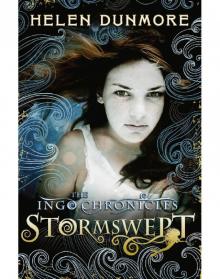 The Ingo Chronicles: Stormswept
The Ingo Chronicles: Stormswept The Deep
The Deep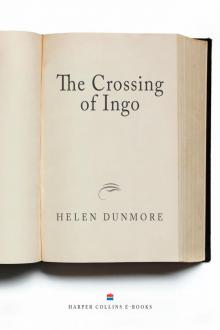 The Crossing of Ingo
The Crossing of Ingo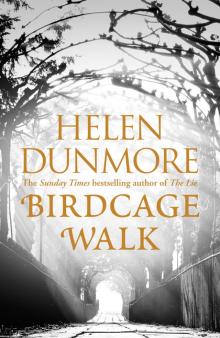 Birdcage Walk
Birdcage Walk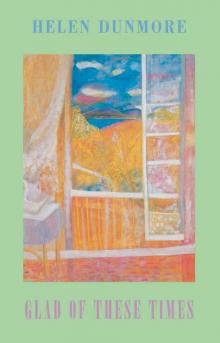 Glad of These Times
Glad of These Times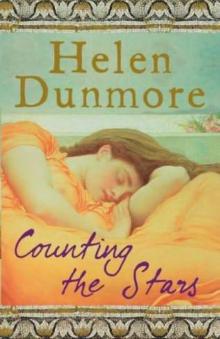 Counting the Stars
Counting the Stars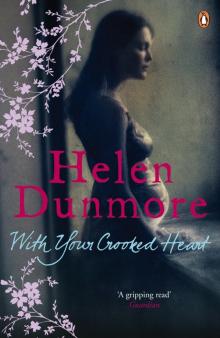 With Your Crooked Heart
With Your Crooked Heart Burning Bright
Burning Bright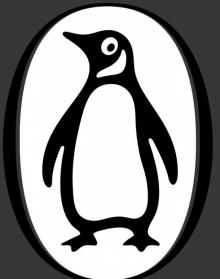 House of Orphans
House of Orphans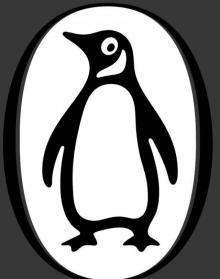 Mourning Ruby
Mourning Ruby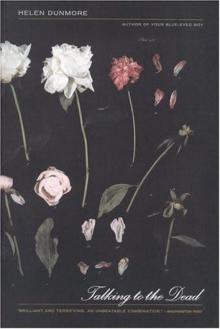 Talking to the Dead
Talking to the Dead Exposure
Exposure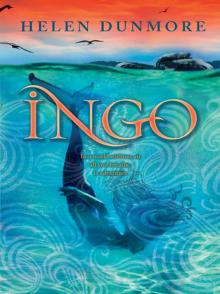 Ingo
Ingo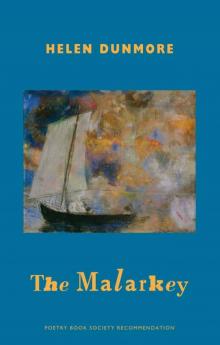 The Malarkey
The Malarkey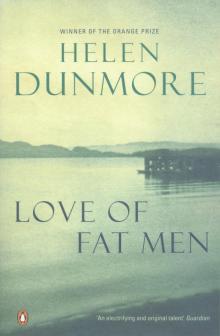 Love of Fat Men
Love of Fat Men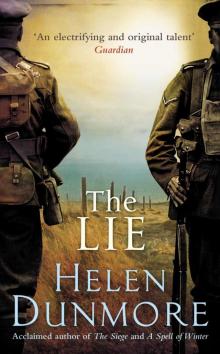 The Lie
The Lie The Siege
The Siege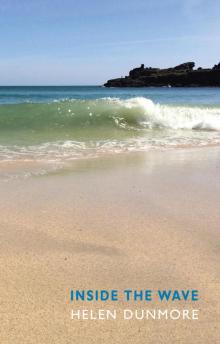 Inside the Wave
Inside the Wave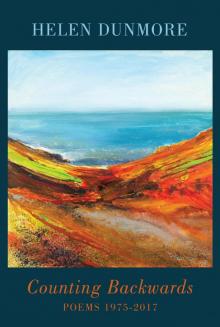 Counting Backwards
Counting Backwards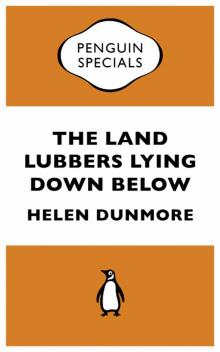 The Land Lubbers Lying Down Below (Penguin Specials)
The Land Lubbers Lying Down Below (Penguin Specials)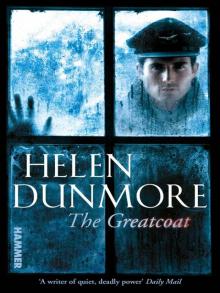 The Greatcoat
The Greatcoat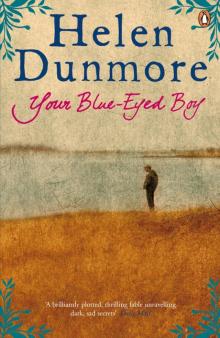 Your Blue Eyed Boy
Your Blue Eyed Boy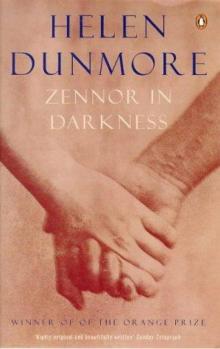 Zennor in Darkness
Zennor in Darkness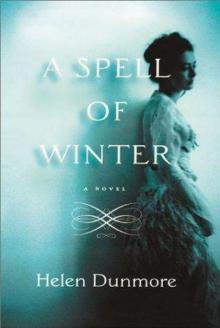 Spell of Winter
Spell of Winter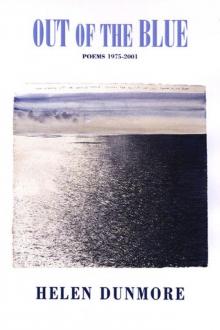 Out of the Blue: Poems 1975-2001
Out of the Blue: Poems 1975-2001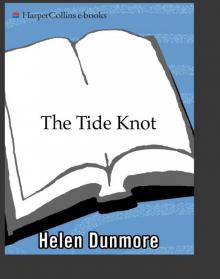 Tide Knot
Tide Knot The Betrayal
The Betrayal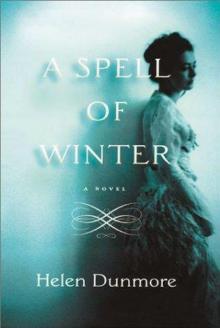 A Spell of Winter
A Spell of Winter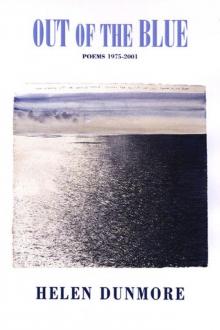 Out of the Blue
Out of the Blue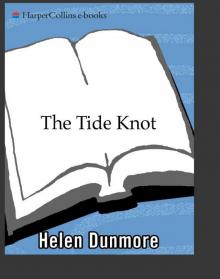 The Tide Knot
The Tide Knot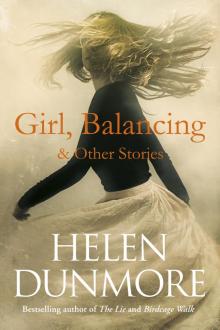 Girl, Balancing & Other Stories
Girl, Balancing & Other Stories Betrayal
Betrayal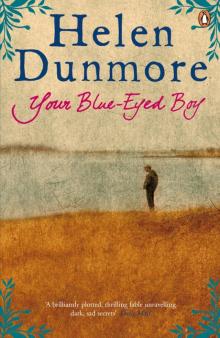 Your Blue-Eyed Boy
Your Blue-Eyed Boy